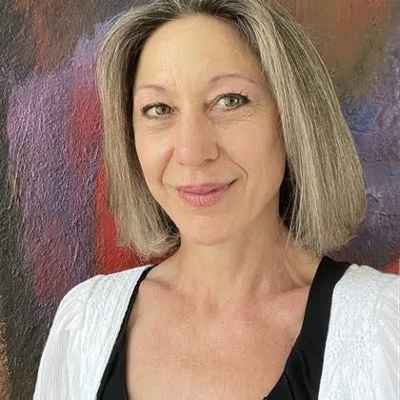A Boy Walks Through Fire Carrying a Slingshot
I watch him step carefully around burning
tires. Protruding from his right hand,
his tool, a slingshot. A toy from his youth,
a defense shield, an escape.
Crossing the flames, his image blurs.
Dazed eyes, twin orbs
probe the disaster.
Who destroyed hope?
Everything is melting.
Those tires will turn to ash,
sullied black stain signifiers
on the pavement, burnt cinders.
He chokes on fumes from the inferno
from overwhelming darkness, stateless.
His boyhood empty, spent.
His determination symbolizes
rebellion, as he traverses dark
Erebus, searing crematory.
He walks into blazing
twisted flames.
Poetry cannot contain such fire.
It Hurts to Breathe
To Álvaro Conrado
A bleeding heart.
Hollow, barren dreams.
As the decibels of death increase,
he hears only broken muttering
of those trying to calm him.
The gushing from his veins slows,
until his blood stops completely.
Pulse weakening. The circulatory
flow to stay alive,
cuts off his life supply.
It
hurts
to breathe.
Epitaph
I participated in the April rebellion.
Ernesto Cardenal
Freedom never gets old, believe me.
The word is the bedrock of rebellions,
tireless insurrection in the verse whose voice
protects the vulnerable.
Accuse me, judge me with unfounded laws
rip out my heart, tear out my conscience,
exile me, banish me from poetry.
Mr. Agent, fire away. Vent your anger,
topple me with your suicidal bullets.
I will navigate through the blood that pools
beneath your feet. An orderly flow, transparent
for you to see yourself. Mirror for your crimes,
Narcissus scorning his reflection.
If they say I fell
let my tombstone read:
I participated in the April rebellion.
Exile
To exiled Nicaraguans
They depart, they flee their country
they leave their gallopinto rice and beans
the morning tortilla with cheese
the concrete-block home
the patio with its jocote fruit tree.
They flee the massacres, the slaughterhouse
that Nicaragua has become.
They just go. They go far away
carrying their satchels of homesickness.
And there will be some who will miss
the guardabarranco’s winged flight,
the cackling of hens,
interwoven with dawn,
the tortilla-seller singing each morning,
drinking sweet tiste, pinolillo with güirila corn pancakes.
They learn to live again
they leave behind their city, friends, the prole
how they express themselves,
treasured childhood memories.
They develop new routines,
they love, smile, make love
in beds in European cities,
they place their belongings in armoires,
and buy books they never finish,
they travel endless streets,
they witness the dismembering of their past.
Remembering joins together
nation and exile.
Insurance Against Autocracy
Beware those who attack the word,
those who brand poetry subversive
to banish it, to eradicate it.
Proceed with caution because that is where
books are banned and breathing
is punished. Reading is breathing.
Never forget that literature is graced
with immortality. Know that death is inevitable,
departure from this cruel, satanic, antibiblical
world, but do not forget
that poets (pursuers of knowledge)
outlive time. Poetic feelings
grow vital, permanent. The intended message
grows stronger. I give you three pieces of advice.
Perhaps you will use them when you least expect
if autocracy floods your borders. First,
do not dismiss reason. Second,
understanding and listening
are fountains of empathy.
Third, write because
writing is a way to speak with your other self.
Try not to lose heart,
the bedrock of the human condition.
Do not suffer, my friend. If you stumble,
lean on poetry. Read and feel.
Nurture freedom, valuable pillar.
Annihilation, end of autocracy.
Translated by Stacey Alba Skar-Hawkins
.





